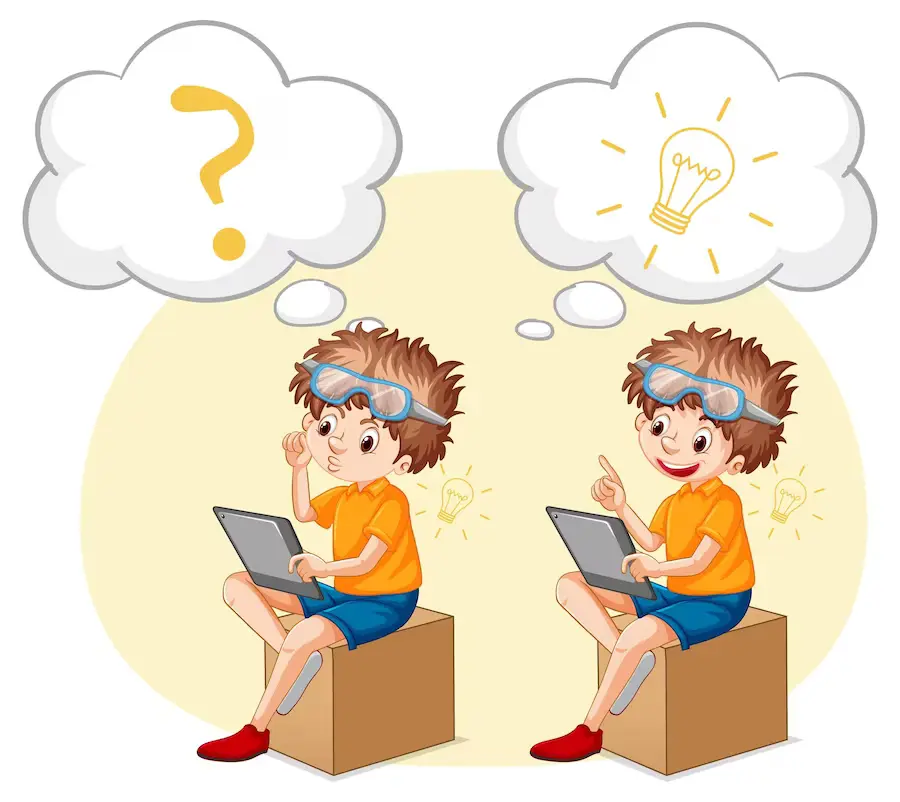Outline of the Article:

- Introduction
- Understanding Fundamental Beliefs 2.1 Definition of Fundamental Beliefs 2.2 Formation of Fundamental Beliefs 2.3 Impact of Fundamental Beliefs on Behavior
- The Power of Fundamental Beliefs 3.1 Shaping Our Perceptions 3.2 Influence on Decision Making 3.3 Role in Building Resilience
- Challenging and Changing Fundamental Beliefs 4.1 Identifying Limiting Beliefs 4.2 Strategies to Challenge Negative Beliefs 4.3 Embracing Positive Beliefs
- Case Studies: The Impact of Fundamental Beliefs 5.1 Success Stories 5.2 Learning from Failures
- The Connection Between Fundamental Beliefs and Self-Worth
- Nurturing Positive Fundamental Beliefs 7.1 Cultivating a Growth Mindset 7.2 Seeking Support and Guidance 7.3 Practicing Self-Compassion
- Embracing Change and Growth 8.1 Adapting to New Perspectives 8.2 Continual Learning and Development
- Building Empathy through Understanding Belief Systems
- The Role of Fundamental Beliefs in Society and Culture
- The Intersection of Science and Belief
- Harnessing the Power of Fundamental Beliefs for Positive Change
- Empowering Others through Empathy and Respect
- Conclusion
Reflecting on the Power of Fundamental Beliefs

Introduction
Beliefs are the foundation of mental cognition, shaping our perspectives, attitudes, and decisions. Among them, fundamental beliefs hold significant influence over various aspects of our lives. This article shows you an example of the power of fundamental beliefs, exploring their formation, impact, and potential for personal growth and societal transformation.
When fundamental beliefs are challenged, it often stirs a maelstrom of emotions and reactions in people, and those who question or challenge these beliefs can be unfairly judged or demonized by others. This phenomenon has been likened to being labeled as the “devil” in certain situations, as if questioning established norms places the dissenters on the fringes of society, seen as dangerous or malevolent figures.
Because with a book in your possession, you feel as though you’ve transcended the boundaries of mortal understanding. As you dedicated yourself to one book, its pages whispered with a soft, ethereal rustle, as if the collective familiarity and comfort of ages stirred within its confines. Each page is a gateway to unparalleled understanding, a realm where known history intertwines with the foretelling of the future. Within its script lies the potential to unravel the most perplexing riddles and unlock the enigmas of existence.
You are no longer plagued by uncertainty; nothing will knock you off guard. You are now certain that you’ve got all the answers. You’ve unlocked the key to the universe’s deepest enigmas and hold the power to unravel even the most complex of questions. Having all the answers figured out brings an unparalleled sense of empowerment. It’s as if you’ve gained access to a celestial library where every inquiry is met with boundless clarity. You find yourself effortlessly traversing through time and space, peering into the past and foreseeing the future with ease.
In closing the book, the feeling of empowerment lingers, reassuring you of comfort on your journey. You walk forward with the certainty that the world is brimming, and you’ve got all the answers now. Once more, there are many others who share the same book and are saying the same thing. You are now at ease with those around you, and you expect others to align with what is now socially acceptable.
Understanding Fundamental Beliefs

2.1 Definition of Fundamental Beliefs
Beliefs, also known as core beliefs, are deeply ingrained assumptions and convictions that individuals hold about themselves, others, and the world around them. These beliefs are formed over time through experiences, upbringing, culture, and social interactions.
2.2 Formation of Fundamental Beliefs
The development of beliefs begins in early childhood and continues throughout life. It is the prevailing narrative that was passed down to your parents and passed down to you. It is the coping worldview that keeps the peace within your household. It says to you, this is the way it is, and there is no other way. It is influenced by family dynamics, education, the media, and the broader social environment. Early experiences leave lasting impressions that mold our belief systems. Many are still fighting that the Earth is flat, but you’ve been taught that it is a ball, and yet there was a time when it was the other way around.
2.3 Impact of Fundamental Beliefs on Behavior
Beliefs serve as guiding principles, shaping our thoughts, emotions, and behaviors. They can either empower us to achieve great heights or limit our potential due to self-imposed restrictions. For example, whether there are more lands to explore on the flat earth that cannot be reached because of an ice wall and outer space can’t be reached because of a dome barrier or on the round ball earth that has no more lands to explore and the last frontier is outer space and can only be reached by a space ship.
The Power of Fundamental Beliefs
3.1 Shaping Our Perceptions
Our beliefs act as filters through which we interpret the world. Positive beliefs can lead to optimistic perceptions, while negative ones may cloud our judgment and hinder personal growth.
3.2 Influence on Decisions
Our decisions are heavily influenced by our beliefs. Believing in our abilities and worthiness can drive us to take risks and pursue ambitious goals, while self-doubt can lead to missed opportunities.
3.3 Role in Building Resilience
Fundamental beliefs play a crucial role in resilience and coping mechanisms. Those with strong positive beliefs are more likely to bounce back from setbacks and adversity.
Challenging and Changing Fundamental Beliefs

4.1 Identifying Limiting Beliefs
To foster personal growth, it is essential to identify and challenge limiting beliefs that hold us back. Recognizing these beliefs is the first step towards transformation.
4.2 Strategies to Challenge Negative Beliefs
Various strategies, such as cognitive restructuring, mindfulness, and therapy, can help challenge negative beliefs and replace them with constructive ones.
4.3 Embracing Positive Beliefs
Cultivating positive fundamental beliefs can lead to increased self-confidence, motivation, and an overall better outlook on life.
Case Studies: The Impact of Fundamental Beliefs
5.1 Success Stories
Examining the success stories of individuals who have transformed their lives by altering their beliefs offers inspiration and practical insights.
5.2 Learning from Failures
Failures also provide valuable lessons on how beliefs can hinder or facilitate personal growth and achievement.
The Connection Between Beliefs and Self-Worth
The interplay between beliefs and self-worth is profound. Understanding this connection empowers individuals to foster a healthy sense of self-esteem and self-compassion.

Nurturing Positive Fundamental Beliefs
7.1 Cultivating a Growth Mindset
Adopting a growth mindset enables individuals to embrace challenges, learn from failures, and persist in the face of obstacles.
7.2 Seeking Support and Guidance
Seek support from mentors, coaches, or peers can aid in challenging beliefs and building a positive support system.
7.3 Practicing Self-Compassion
Treating oneself with kindness and understanding, especially during difficult times, fosters resilience and self-acceptance.
Embracing Change and Growth
8.1 Adapting to New Perspectives
Embracing change and new perspectives can open doors to personal transformation and expanded belief systems.
8.2 Continual Learning and Development
Engaging in continual learning and personal development nurtures an evolving and adaptable belief system.
Building Empathy through Understanding Belief Systems
Empathy is enriched by understanding the diversity of belief systems that shape individuals’ worldviews, fostering compassion and connection.
The Role of Fundamental Beliefs in Society and Culture
Fundamental beliefs play a pivotal role in shaping the values, norms, and behaviors of societies and cultures.
The Intersection of Science and Belief
Exploring how science and belief intersect can bridge gaps between different perspectives and promote evidence-based logic.
Harnessing the Power of Fundamental Beliefs for Positive Change
Understanding the power of fundamental beliefs equips individuals and communities to drive positive change and work towards common goals.
Empowering Others through Empathy and Respect
Empowering others through empathy and respect for their beliefs fosters a harmonious and inclusive society.
Conclusion
Fundamental beliefs are the bedrock of mental cognition and behavior. Embracing the power of positive beliefs, challenging limiting beliefs, and fostering empathy towards diverse belief systems can lead to personal growth and societal transformation. By challenging their own fundamental beliefs, individuals can explore on a journey of self-discovery and work towards building a more compassionate and inclusive world.
FAQs
- What are fundamental beliefs? Fundamental beliefs are deeply ingrained assumptions and convictions that individuals hold about themselves, others, and the world around them.
- Can beliefs change over time? Yes, fundamental beliefs can change as individuals undergo new experiences, gain insights, and challenge their existing belief systems.
- How can I identify limiting beliefs in myself? Reflecting on your thoughts, emotions, and patterns of behavior can help you identify limiting beliefs that may be holding you back.
- Is it possible to change negative beliefs into positive ones? Yes, with consistent effort, various strategies like cognitive restructuring and mindfulness can help shift negative beliefs into positive ones.
- How can empathy towards others’ beliefs benefit society? Empathy towards others’ beliefs fosters understanding, compassion, and cooperation, creating a more harmonious and tolerant society.




